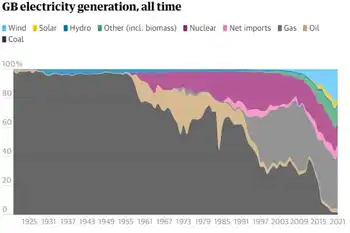Minnesota Signs Deal With Manitoba Hydro
WINNIPEG -- - The Minnesota Public Utilities Commission has unanimously approved a $1.7 billion power export deal with Manitoba Hydro.
It allows Minneapolis-based Xcel Energy to import power from Manitoba Hydro, despite the objections of aboriginal groups.
The 500-megawatt, 10-year deal was given the go-ahead.
It's an extension of an existing deal and will allow power to be exported until 2015.
Approval by Canada's National Energy Board is pending.
The Minnesota decision is a blow to the Pimicikamak Cree Nation of Cross Lake, Manitoba. They had asked the commission to first call a formal hearing into the social and economic impact of historic hydro development on their homeland.
Related News

Six key trends that shaped Europe's electricity markets in 2020
LONDON - European Electricity Market Trends 2020 highlight decarbonisation, rising renewables, EV adoption, shifting energy mix, COVID-19 impacts, fuel switching, hydro, wind and solar growth, gas price dynamics, and wholesale electricity price increases.
Key Points
EU power in 2020 saw lower emissions, more renewables, EV growth, demand shifts, and higher wholesale prices.
✅ Power sector CO2 down 14% on higher renewables, lower coal
✅ Renewables 39% vs fossil 36%; hydro, wind, solar expanded
✅ EV share hit 17%; wholesale prices rose with gas, ETS costs
According to the Market Observatory for Energy DG Energy report, the




